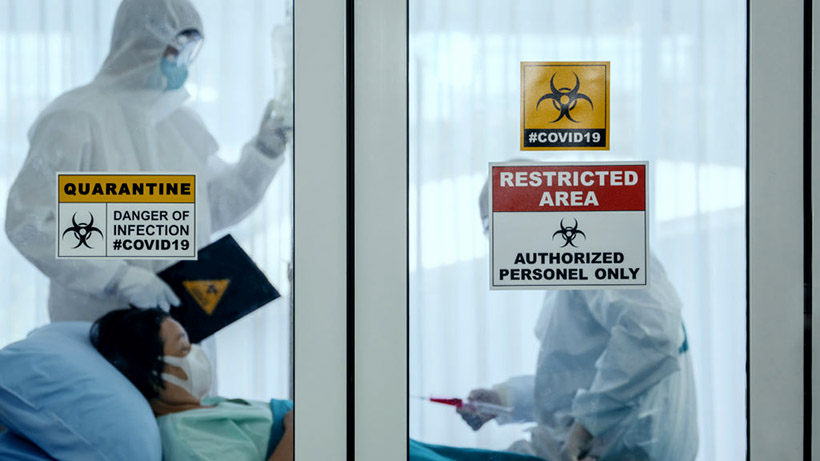Publisher's note: This post appears here courtesy of the Carolina Journal, and written by Julie Havlak.

Worries about the safety of health care workers and the shortage of protective gear dominated the second meeting of the House Select Committee on COVID-19 Health Care Working Group on Thursday, April 2.
North Carolina has just 30% of the protective equipment providers need across the state. Fourteen pallets of PPE are headed to the state from the national stockpile of protective gear, but that stockpile is almost depleted. State leaders say the shortage is "incredibly worrisome," and they're looking to private manufacturers for help.
Cloth and surgical masks won't help protect providers. They're too porous to stop health care workers from inhaling the virus. Providers say they need the
N-95 masks that filter air, or the shortage of protective gear could spawn a shortage of health care workers.
"Surgical masks are just used to keep the provider from spreading any germs to the patient," said Dennis Taylor,
N.C. Nurses Association president.
"Nurses should not be wearing cloth masks. They do not afford the wearer any significant protection."
Making matters worse, testing patients for COVID-19 has "burned through" protective gear. The state tested 28,679 people as of Thursday, but has since shifted away from relying on testing to track the spread. The state has grappled with shortages of test materials and protective gear since the early days of the outbreak.
It may partner with private companies to make protective gear. Textile companies, clothing manufacturers, and NASCAR engineers are already making protective equipment in North Carolina. Nationally, the automotive industry is racing to make thousands of ventilators.
"It's too early to announce anything yet, but we have a lot of irons in the fire," said state Health and Human Services Secretary Mandy Cohen.
"We have been working on procuring these items from around the world ourselves. It's not an easy task, because we are all competing for the same gear."
The state is planning for a surge, but Cohen compared the reliability of current models of the virus to weather forecasts. She hopes to share some state models as soon as next week.
One expert teared up during her testimony to lawmakers.
"I will tell you, the numbers that I'm seeing right now, based on the limited data we have, and the situation that is changing daily, is what's keeping me up at night," said Gibbie Harris, Mecklenburg County public health director.
"Workforce is going to be a critical issue."
Multiple speakers warned that shortages of protective gear could cause medical providers to fall sick, sidelining workers during a surge of coronavirus patients.
"They need these items to do their jobs without fear or concern for their own well-being and the safety of those around them," said Tina Gordon, NCNA chief executive officer.
"If they get sick, who will take their place? ... They consider themselves to be your frontline soldiers in this effort, but they don't feel they have the protection or ammunition they need."
Cohen is also concerned about personnel shortages. The state has already begun to loosen licensure regulations on medical providers to increase the supply.
"We are really trying to ramp up our thinking around personnel, thinking about retraining people who may not have worked in hospital settings," Cohen said.
The N.C. Board of Nursing is temporarily easing licensure burdens on retired nurses and nursing students. COVID-19 has stalled clinical hours and closed testing sites, raising concerns the virus would block graduates from entering the workforce when the state needs them most.
Nurse advocates asked lawmakers to further loosen regulations preventing nurses from volunteering without a physician supervisor. New York lifted physician supervision requirements.
"We expect there to be significant strains on the nursing workforce, as well as all parts of the healthcare workforce," Gordon said.
"We know there may be opportunities for the state to offer some flexibility that would exceed the authority of the licensing boards."
























